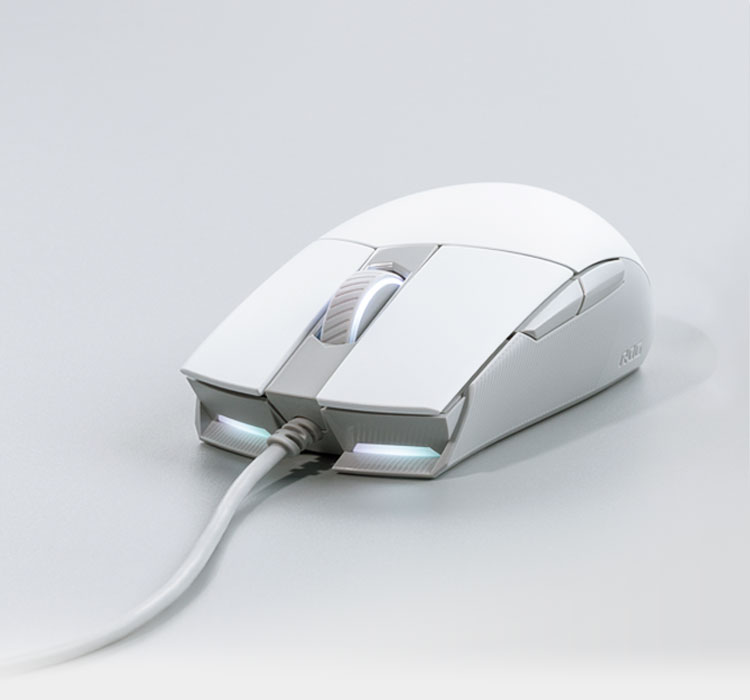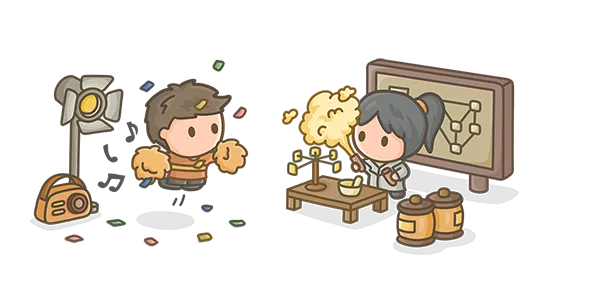How do you view the world? (S-N-T-F)
Let's try a simple experiment. Based on the picture below, list down ten thoughts that come to your mind. Give it a try!
 .
.
.
.
.
.
Done? Make sure you have your answers!
.
.
.
.
.
Alright, if you're like me, you might have thought of things like:
- Mouse
- White color
- Cool glowing lights
- Clean and simple
- Grey color
- Looks like my friend's mouse
- Long wire
- Sharp, quality image
- Expensive
- Man I want this mouse
Okay, most people probably would've thought of #10.
On the other hand, if your more on the intuitive side, you might answer:
- Mouse
- Using my computer
- My office mice is wireless
- Barcode
- Scientists in a futuristic laboratory
- Spaceship
- Weaponry
- Purity, heaven-like
- Whip
- Alien vs Predator
My friend was playing this simple test with me one day, and he explained that it tends to (though not always) show the difference between a Sensor and an Intuitive.
"What's that?" you ask? I had the same reaction.
I'll get back to answering this in a minute. But what he revealed to me was fascinating. Despite the diversity of humanity with its various cultures, lifestyles, and beliefs, our modes of thinking aren't exactly that random. If we were to boil it down, there are four ways we interact with the world: Sensing, Intuition, Thinking, and Feeling.
Sensing & Intuition
Put simply, what do you notice when you look at things? Sensing and Intuition describe the type of information that comes into your mind—whether it's facts or concepts.
Sensor (S)
Sensors rely on concrete facts and practical details to understand the world. They focus on what’s real and observable, piecing together information by examining what’s directly in front of them. Their conversations often center on facts, figures, and tangible experiences.
Example: A Sensor learning about a new gadget would examine its features, specifications, and how it functions in real-world scenarios.
Intuitive (N)
Intuitives approach life with a focus on ideas, concepts, and possibilities. They’re more interested in patterns, meanings, and theories than immediate facts. When processing information, Intuitives often zoom out to see the broader context, asking why something exists or what it could lead to.
Example: An Intuitive learning about a new gadget would be curious about how it fits into future trends, why it was designed that way, and what creative potential it holds.
Thinking & Feeling
In simple terms, how do you make decisions? Thinking and Feeling describe the criteria you focus on when evaluating your choices—whether through logic or emotions.
Thinker (T)
Thinkers prioritize logic and reasoning when making decisions. They focus on what works best based on rational principles, often analyzing situations to develop effective solutions. Emotions are considered secondary to objective reasoning.
Example: A Thinker deciding on a new project would evaluate probability of success, growth potential, and benefits over personal preferences or emotional attachment to the workplace.
Feeler (F)
Feelers value empathy and personal values when making decisions. They are more concerned with how actions affect their own feelings or the feelings of others. They tend to assess situations based on their emotional impact and what feels morally right.
Example: A Feeler deciding on a new project would consider how fulfilling the work feels and whether it aligns with their personal values or connections with colleagues.
Disclaimer: It's a common misconception that females are more likely to be Feelers, while males are more likely to be Thinkers. But that’s just not true. Both groups have just as many Thinkers as they do Feelers.
Unfortunately, society has long imposed unfair standards: men are often shamed for showing too much emotion, while women who appear logical are criticized as being cold or "unwoman-like."
If you're interested, I recommend reading "Thinker vs Feeler: Influence of Gender Roles" by Personality Ninja. Even if you're not into personality theory, it's an eye-opening insight into how societal expectations have boxed us into harmful gender stereotypes we must learn to break free from.
 Look how cute Personality Ninja's artwork is!
Look how cute Personality Ninja's artwork is!
"Well, I do a little bit of everything that's mentioned here," of course you do! We all have these four modes within us. The only difference is how frequently we use each one.
Recognizing this is important because it helps you understand where your natural tendencies are and which aspects you might be neglecting.
Personally, I'm a Thinker. And let me tell you, as a Thinker, I really struggle with emotions. :P People say I'm harsh and too straightforward, but to me, I was just stating things as they were.
Learning about this made so much sense. I realized my strengths lay in reasoning and logic, but I also saw the gaps where I needed to work on my emotional awareness. Slowly but surely, I've been improving that part of myself.
I think we all have similar issues in one way or another. Whether you're an Intuitive who struggles to focus on facts, or a Feeler who sometimes lacks logical backing in your decisions, becoming aware of your tendencies is the first step toward real growth.
When you recognize your pitfalls, you can work better around them. Instead of feeling stuck in the same cycle of problems, you gain the power to make meaningful changes for yourself. It's helped me tremendously in my life, and I hope it'll help you too. :)